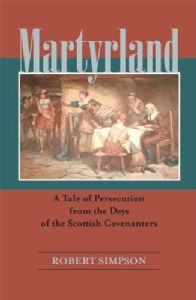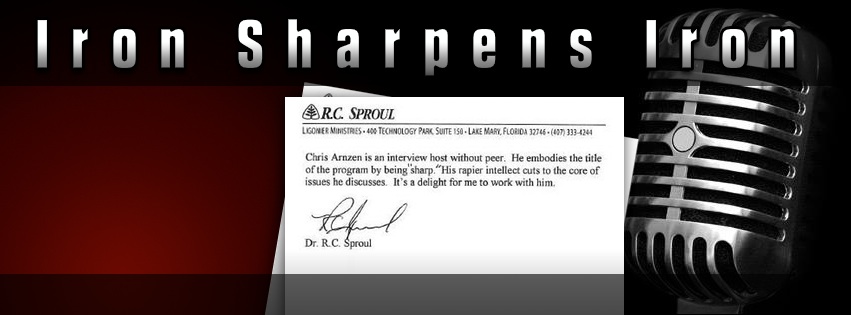




 |
|||||
 |
MARTYRLAND: Perils of the PersecutionA Tale of the Days of the Scottish Covenanters
Robert Simpson![]()
"Over 18,000 saints of God had been martyred before the ascension of William III to the throne of England in 1688 and the subsequent 'Glorious Revolution' which brought an end to the terrible persecutions in Scotland...There are many historical records and accounts of the exploits of the Covenanters, but 'Martyrland' stands in a league all of its own. If you would like to be transported in your imagination back to the 17th Century and enabled to vividly hear, and see, and smell, and feel all that went on, then this book is going to capture your mind in a way that you will not easily forget! One piece of friendly advice: Don't let your Spouse know of this book until AFTER you have read it. I made that mistake, and for a few weeks my wife and I were racing to be first in bed so as to get first dabs on what still remains our favorite historical narrative!" - Pastor Robert Elliott, Riverside, California![]()
At the recommendation of Robert Elliott the publisher acquired a copy of this book. Night after night I found myself rising in the middle of the night wanting to read more of this precious book. It is good for the soul to read such accounts of the persecuted brethren of the past. It is a book you will want to read again and again.![]()
Rev. Robert Simpson (1792-1867) was the minister of North United Presbyterian Church of Sanquhar, Scotland for forty-eight years. An honorary degree was conferred by Princeton College, U.S., 1853. In addition to "Martyrland" he was author of "The Two Shepherds," "The Minister and his Hearer," "Traditions of the Covenanters" "Life of the Rev. James Renwick," "A Voice from the Desert," "Memorials of Worth," "History of Sanquhar," and "Cottars of the Glen."![]()
ch823![]()
30% Discount![]() SGCB Price: $13.99 (list price $20.00)
SGCB Price: $13.99 (list price $20.00)
NOW AVAILABLE![]()
Additional Information
• Introduction and Appreciation
| Introduction and Appreciation |
The success of John Knox in reforming Scotland was so significant that in 1560 Scotland 'officially' became a Reformed Nation. However, one hundred years later as Charles II ascends the throne it becomes obvious that his appearance of friendship with the Scottish Presbyterians was a sham and a show, intended to deceive in order that Scotland would support his claim upon the throne.
Supporting Charles II was one of the most foolish things the people of Scotland has ever done. He manifested an unquenchable desire for attention and entertainment and tragically the church was, to him, just another forum over which he would exercise his petty will!
All that had been accomplished at the Reformation was under serious threat. The cruel monarch imposed a law (1661) that made it illegal for a local congregation to choose its own Pastor based upon biblical qualification. Prelacy, as it was called, placed this responsibility in the hands of Bishops, who ultimately were answerable, not to Christ the true Head of the Church, but to Charles II. The next step, which was quickly taken, was to throw Pastors out of their churches and replace them with mere 'puppets of the King.'
Needless to say the godly people who had been well trained and schooled in the Scriptures would not, could not, settle for such intrusion into their worship. They hungered for the Word of God to be preached, and were disgusted at the strange doctrine being foisted upon them as they gathered with God's people on the Lord's Day. They recognized no Head of the Church save Jesus Christ and wanted no preachers save those their head called to Himself and then sent to feed His sheep.
The cruelty of Charles II caused many who had covenanted to follow Christ and to take up arms to defend their homes and families from Charles' marauding men. Military characters such as Richard Cameron came to the fore whose actions were heroic and brave as he sought to take on the might of the English King.
However, the men that held together the cause of the Covenanters were not those who fought heroically at Drumclog or Bothwell Bridge. It was, rather, the faithful preachers, being ousted from their churches they would meet their congregations secretly in the middle of the damp moorlands of the Scottish Southwest. Preachers, like Alexander (Sandy) Peden were forced to live as fugitives, often in caves or in the homes of those who loved them and their message. They would stay in such homes for no more than a night or two before having to move on, lest their presence should bring the whole household into serious danger or even death at the end of an English soldier's musket.
The safest meeting places were well beyond the villages and towns, over hills and bogs (marshes) and often under cover of darkness. Many who escaped death by Charles' soldiers found that the inclement conditions of their gatherings (called Conventicles) took their toll and often carried them to the grave. Typically, young and old would venture out on days or nights that ordinarily would have been spent around the hearth. But for the sake of their true Monarch (Jesus Christ) they would leave the safety of home and walk to out of the way locations, they would then congregate in absolute silence, sometimes waiting for hours for the preacher to be safely conducted to them. Their patience rewarded and discomfort forgotten they would spend hours gladly singing praise to God and being fed upon gospel truth. The cold, the dampness, the terrain took many a dear old saint home to meet their Lord earlier than would otherwise have been the case.
To be caught having any involvement in a Conventicle would at times result in a trial for treason and then death, but often the trial was by-passed and the red-coats would hasten the Covenanters departure by murdering them in cold blood, without any judicial hearing.
Over 18,000 saints of God had been martyred before the ascension of William III to the throne of England and the subsequent "Glorious Revolution" which brought an end to the terrible persecutions. There was now no need to escape to The Land of the Free on the other side of the Atlantic. Instead once again the gospel was freely preached by men appointed by the true Head of the Church.
There are many historical records and accounts of the exploits of the Covenanters, but Martyrland stands in a league all of its own. If you would like to be transported in your imagination back to the 17th Century and enabled to vividly hear, and see, and smell, and feel all that went on, then this book is going to capture your mind in a way that you will not easily forget!
Living and preaching in Sanquhar, a little town at the center of the Covenanting cause, gave its author tremendous insight into the lives and personalities of the Covenanters. Some of his characters are fictional, created in order to help us get close to those who lived in the days of persecution. One cannot help but wonder how many couples like Gilbert and Grizzy are vividly represented by Gilbert and his wife Grizzy. Like the vast majority of Covenanters they are simple farming people, with a deep love for one another and for God. You will also meet the greatly used Sandy Peden whose life and service for Christ is worthy of your further research. Simpson weaves many actual incidents and characters into this story in a way that brings it all to life.
While ministering in the little Scottish village of New Cumnock, I became aware that all around me there were memorials to martyrs who had died because they would allow no other King but Jesus to rule in His church. It became a favorite pastime of mine to walk a hill or over a moor to reach those sites, and when there read the account of the death of Charles' victim. I also read a great deal trying to understand their theology, philosophies and priorities, but when one of the dear men from the church I was pastoring (Tom McGinn, thank you!) placed Martyrland in my hand, a richer dimension of who these people were, and what it was like to live as one of them dawned on me. I was not only surrounded by the hills and glens that my Protestant forefathers walked, I almost thought I could hear their voices and see their worn out but happy faces!
One piece of friendly advice: Don't let your Spouse know of this book until AFTER you have read it. I made that mistake, and for a few weeks my wife and I were racing to be first in bed so as to get first dabs on what still remains our favorite historical narrative!
Pastor Robert Elliott
Reformed Baptist Church
Riverside, California USA
